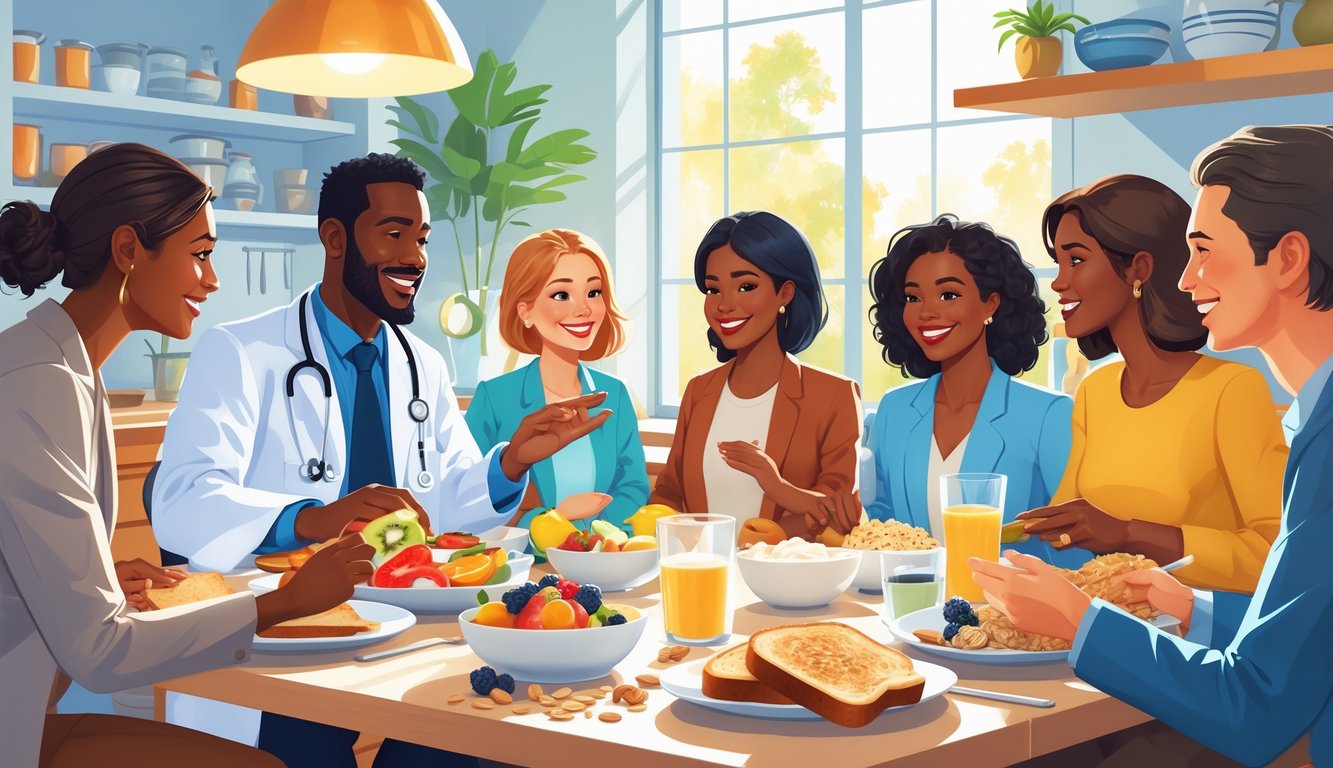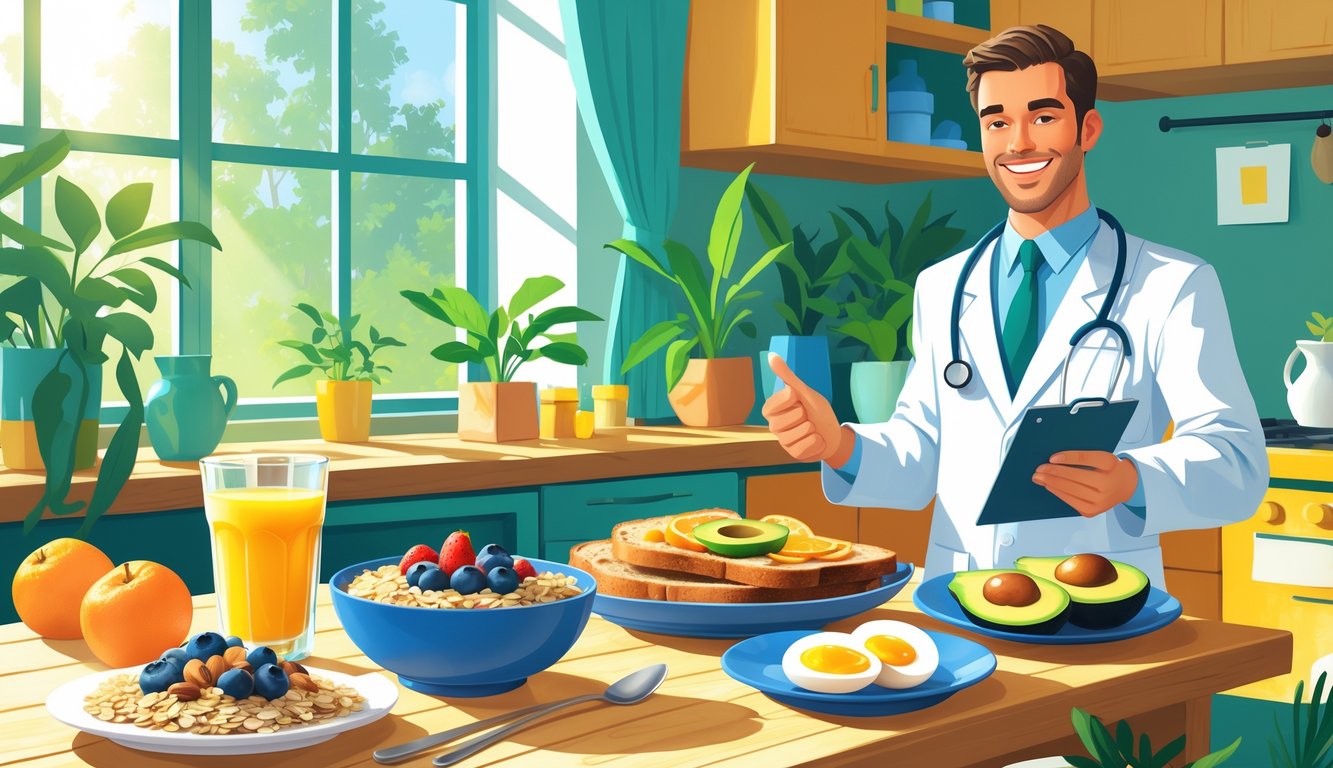
Okay, so here’s the deal: I’m standing in the kitchen, fridge door open, phone buzzing, late again, and I’m supposed to be “transforming my morning energy” with breakfast? Sure. Supposedly, actual doctors—like, the kind with degrees—insist that ditching cereal for something packed with protein (Greek yogurt, eggs, or, if you’re as lazy as me, last night’s chicken) and fiber (whole grain bread, chia pudding, whatever’s not stale) actually keeps your blood sugar steady and your brain not totally fried before noon. Dr. Emily Monahan, RD, says 20 grams of protein is the magic number. Why 20? I don’t know, but she sounds confident. Meanwhile, I watch my friends crash by 10:30 after inhaling a muffin—science says that’s what happens, but honestly, do they even care? And “breakfast bars”—ugh. If there’s more than nine grams of added sugar, the Mayo Clinic says you basically just ate dessert.
But here’s what gets me: prepping breakfast sounds like something productive people do, but my “meal-prep” containers just collect dust until I throw them out in a guilt spiral. My nutritionist friend—she’s obsessed—claims “overnight oats with PB & banana” is the holy grail for appetite and, I guess, stamina? I don’t know, she runs marathons. She swears the protein and fiber combo means no crash, and honestly, the American Journal of Clinical Nutrition (2022) keeps hammering on about high-protein, high-fiber breakfasts making people less hungry and less cranky, so maybe she’s onto something. I used to blame my mid-morning brain fog on bad sleep, but maybe the bagel is the real villain here.
Some mornings, it’s chaos: cold tile, mismatched socks, inbox already overflowing, and the blender only works when it feels like it. Skipping breakfast? Dietitians call it “energy sabotage,” which sounds dramatic, but… yeah, they’re not wrong. I’ve tried skipping, grabbing, even prepping, and every time I show my food log to an MD, they just say, “Eat more fat and fiber.” Like that’s going to magically fix my caffeine addiction (sometimes, it actually does, which is annoying).
Why Breakfast Is the Most Important Meal of the Day
The debate never ends—someone skips breakfast, someone else crashes, everyone’s coffee is cold. Doctors toss out “most important meal of the day” like it’s a password, but the research just keeps trickling in: breakfast does something to your brain, blood sugar, hunger hormones—even if you’re eating cardboard oatmeal. Are these benefits real? Annoyingly, yes, some of them. Not just old wives’ tales.
Health Benefits of Eating Breakfast
I swear, I can actually focus at work if I eat anything—protein bar, Greek yogurt, even just a banana. Skip breakfast? I’m a zombie. There’s this study—30,000 adults, apparently—where about 15% skipped breakfast and ended up with more weight gain, mood swings, and blood sugar drama. Nutritionists say breakfast “resets” your metabolism, but I just want to avoid being hangry at 11am. Dr. Lisa Mosconi (she’s a neuroscientist, so I guess she knows) says breakfast literally fuels your brain for real cognitive tasks. Honestly, I notice a difference—unless I’ve had three espressos, then all bets are off.
I had low iron once, and my doctor went on and on: morning is the best time for micronutrients—iron, calcium, B-vitamins, fiber, all of it. So apparently, breakfast isn’t just about calories, it’s about actually absorbing the stuff your body needs. Who knew?
Impact on Energy Intake
Does skipping breakfast save calories? I tried tracking this myself for weeks. Spoiler: it doesn’t. I just ate more later—like, “snack” becomes a 600-calorie binge. BJSM research says people who eat tiny breakfasts just end up scarfing more carbs and fat later. It’s like your body rebels. Restrict early, overeat later, repeat.
One doctor had me try a high-protein, moderate-fat breakfast (eggs, avocado toast—classic). I made it to noon without losing it. Not magic, just basic biology. But apparently, if you go overboard at breakfast (hotel buffet style), you still crash in the afternoon. There’s no winning.
Role in Sustained Energy Levels
Let’s be real: if I skip breakfast, I’m raiding the office snack drawer before 10, pretending I want tea. “Balanced breakfast keeps blood sugar stable”—everyone says it, but the BBC actually points out it’s the regular meal pattern, starting with breakfast, that really matters. First meal after sleep sets your insulin response for hours. Miss it? Blood sugar tanks, adrenaline spikes, and you’re left dragging. Mondays are especially brutal. Tried intermittent fasting, thought I was clever, but my Apple Watch literally told me to “breathe” because I was crashing so hard. Breathing doesn’t fix hunger, thanks.
Adults (even me) need energy that doesn’t just evaporate by 10am. The American Dietetic Association keeps repeating: protein and fiber for breakfast (oats, chia, nut butter, whatever) helps prevent overeating and keeps focus steady—assuming you actually eat, not just Instagram your food.
Doctor-Approved Breakfast Habits for Maximum Energy

If I’m running on coffee all morning, something’s broken. Family docs hammer this: skipping or botching breakfast messes up focus, makes sugar crashes almost guaranteed, and even screws up your ability to make basic decisions (like, which train to get on). It’s not about fancy recipes—just the usual stuff, like tossing nuts on your cereal or switching to better bread, actually matters. Sometimes, frozen waffles have more fiber than granola. Who decided that?
Prioritizing Nutritious Breakfast Choices
Cereal boxes promising “energy” but hiding 17g of sugar? Please. My neighbor’s a doctor and she’s obsessed with protein. Like, real protein—yogurt, eggs, leftover chicken (yes, at 7am, and yes, it’s weird). She claims—Mayo Clinic backs her up—that 30g of protein before 10am slashes cravings by almost half. Tofu in a smoothie? Surprisingly not gross. If I’d known two slices of whole grain toast was better than white bread with jam, college might’ve gone better. Wheat germ, chia, cheese on avocado toast—suddenly, I don’t care about coffee. I even started jotting meal ideas in my notes app after realizing boring stuff like oats and berries works way better than drive-thru croissants.
Balanced Meal Planning
Most days, I just steal bites of my kid’s pancakes and pretend it’s a meal—yeah, that’s not balance. Every doctor I’ve ever met goes on about carbs, fats, and protein. Supposedly, half your plate should be whole grains or fruit, a quarter protein, the rest fats. Dr. Mirdamadi on TikTok repeats it constantly, and I ignored it until I started nodding off at work. Fast food breakfast? Always too much sodium, zero fiber, no healthy fat. The only way I manage is making it so easy I can’t mess it up—whole grain toast, almond butter, banana slices, done. The Sleep Foundation lists pumpkin seeds, Greek yogurt, berries—B-vitamins, magnesium, all that. And they’re way easier than cleaning a blender after some green sludge experiment.
Establishing a Consistent Morning Routine
Honestly, consistency is the only thing that works. I used to skip breakfast, swore coffee was enough, and—shocker—crashed at 10:12am every day. Dietitians and family docs laugh at “weekend breakfast only”—turns out, your hunger hormones get confused if you’re inconsistent. Harvard Health said something about this in January, but it was buried in the newsletter. The real tip? Eat within an hour of waking. I set an alarm now; if I delay, my whole day’s a mess. I keep bowls, spoons, eggs right up front, so I can’t pretend I “forgot.” I even pre-bag trail mix for when I’m running out the door. My weekdays basically depend on how well I stick to this—when I do, energy isn’t some mystery, it just kind of works.



